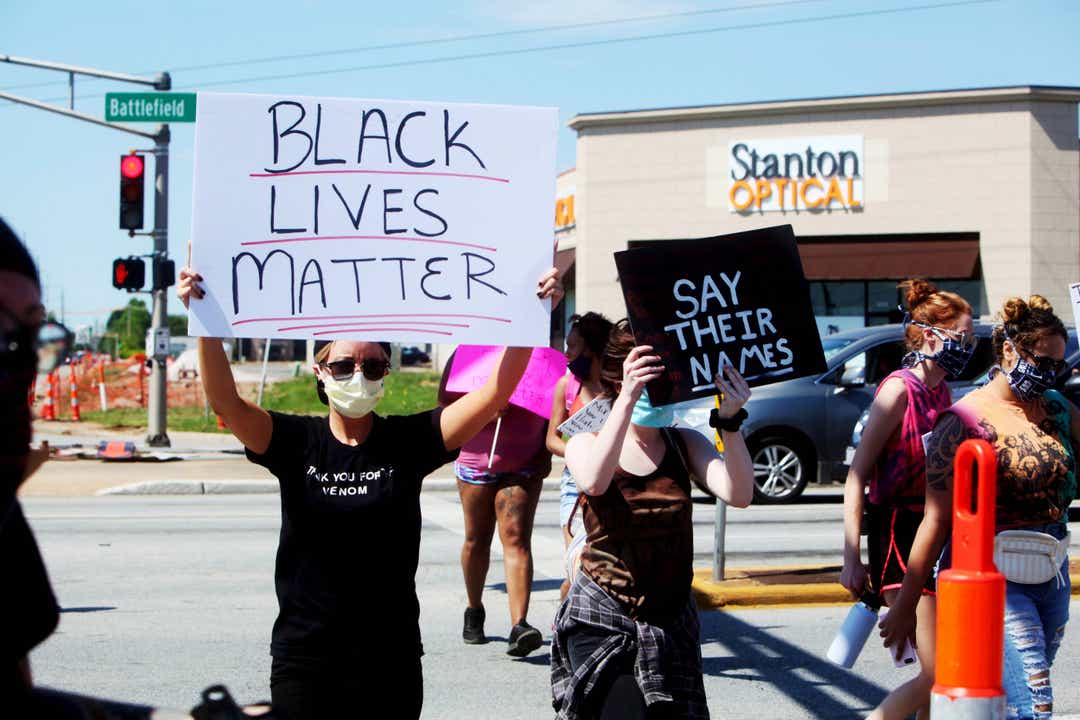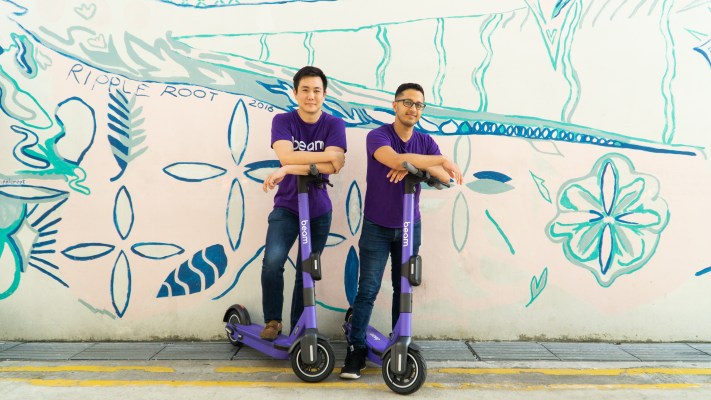stratupnation.blogspot.com
As the economic uncertainty from the coronavirus pandemic lingers, founders of Southeast Michigan startup companies are, like everyone else, wondering what's next.
Late May data from research firm Global Data shows that venture capital funding, the lifeblood of most any growing startup, has slowed down significantly in recent weeks, dropping 5.5 percent in March from the previous month. Higher-value deals of $10 million and above have taken the biggest hit, according to the report.
That tends to ring true to executives at five early-to-middle stage companies in Southeast Michigan, many of whom have ongoing talks with the venture capital community.
For them, business life hasn't stopped — it's just gotten very different.
There was only about a week of downtime for Akervall Technologies Inc. before a major shift in production took place.
For nearly a dozen years, the Saline-based company has manufactured mouth guards for athletic and medical uses.
But demand quickly plummeted in March as all sports were canceled amid the massive outbreak of COVID-19.
Now the company is making masks and face shields by hand — using some existing distribution channels, CEO Sassa Akervall said. What was 20 employees pre-pandemic has grown to around 100, a combination of full-time and part-time employees, Akervall said.
"It was quite a shock. We put everything into this business ... and we really love this business," Akervall said of that first week when the country was thrown into upheaval as the pandemic took hold.
"It was quite depressing there for a week or so where I didn't know what to do. I'm really grateful for the people around me," he said. "But I will say, when you're an entrepreneur, you're really used to thinking outside the box and once the cat was out of the bag, it was just easy to go with it. It takes (being) flexible and nimble. If I had a really huge organization, I'm not sure this would be as easy. But since it was just not even 20 of us, we could do it."
At this point, the company expects to maintain its current headcount through at least August and finds itself slightly ahead of its 2020 budget projections.
While Akervall's company stands as a rare example of finding success during a time of crisis, the executive largely credits her employees with making the transition to manufacturing personal protective equipment.
"When you create a business with your team, you've got to make sure they like what they're doing," Akervall said. "It's not easy ... I think I have a great team and I think they like what they're doing. That makes it easier to get them on board with what you're doing."
"In neutral" is perhaps the best way to describe the current goings-on with Airspace Link Inc., a Detroit-based drone software company.
The company closed on a $4 million fundraising round in January, which gives it about two years of runway in a down economy, President and CEO Michael Healander said.
It's a vastly different feeling than how things were going just eight weeks ago.
"We were on a rocket ship in March. It was conference after conference, launch after launch, media after media," Healander said. "It was taking off and it just shut down. That momentum didn't go to zero. It went to a trickle, so we have a little bit to go off from all of that."
In the relatively short time that the coronavirus has been wreaking havoc, the company has been through a whirlwind, Healander said. The company received — and then opted to give back — a potentially forgivable Paycheck Protection Program loan after determining that it was likely unneeded. He declined to disclose the size of the loan volume, citing concerns from investors.
Still, the company has had to adjust its staffing plans, Healander said. Rather than hire full-time, full-stack developers, the company turned to Invest Detroit Ventures' Hacker Fellows program, which provides fellowship opportunities for developing tech talent.
Healander said that Airspace Link hired only one developer instead of a planned five, and had to let go of one contract employee and a full-time salesperson. And there was a degree of intentionality behind letting go of a salesperson, he said.
In general, the company that usually counts municipal governments among its main clients now finds itself with somewhere between a diminished to nonexistent marketplace for its products.
Still, Healander said he felt lucky to get the capital infusion in January before uncertainty struck investors. Other startup founders with whom he's had recent conversations are in far worse situations, he said.
"When this hit, we threw our company into neutral and we assessed for a few weeks to understand what impact this had and to come up with a new strategy to take us to the long term," Healander said. "We went into neutral and now we have it in a gear with a very different strategy."
Just a few months ago, Lingco Language Labs LLC was on a path of slow but steady growth. However, as COVID-19 has taken hold, so too has the need for distance learning.
The need for social and physical distance has opened a door for a whole new period of growth for the Lansing-based language learning software.
Without COVID-19 hitting when it did, the company's growth would "have been a lot more stable, more predictable," co-founder and CEO Seth Killian said. "I think this basically was a catalyst for what we were already doing, it just moved it up quicker."
Killian was a computer science major at Michigan State University who wanted to study abroad in France.
The challenge: He had struggled to learn French in high school and apps like DuoLingo weren't helping.
So like any entrepreneur, he built something himself.
Now, the product is seeing demand from closed school districts all over the country and internationally. The company has closed on a $500,000 round of investment, which led to the recent hiring of a senior software developer and veteran education industry salesperson.
Now, with demand for the product continuing to ramp up, Killian said his priority is making the distanced learning of the software far easier for new users.
"We've had to get really efficient with onboarding because there's just so many people and not enough of us," Killian said. "So we've gotten more efficient with doing group calls, as opposed to one-on-ones and recording more tutorial videos."
Like many other companies, LawnGuru had to take a brief hiatus as part of the COVID-19 shutdown orders. The Ann Arbor-based company matches up homeowners with people to perform yard work.
Yard work services were temporarily shut down in Michigan last month, per orders from Gov. Gretchen Whitmer. But with those lifted May 7, the company has resumed relatively normal operations.
CFO Jasnik Parmar said the company has seen no immediate drop in demand and remains primarily focused on its customer acquisition strategy, something Parmar said has gotten somewhat less costly and easier during the pandemic, citing the online bidding system the company uses for advertising.
The biggest downside Parmar said he sees is the inability to continue hiring for jobs crucial to LawnGuru's growth.
"We can't hire more sales and support agents. We could hire them and they could figure it out, but there's a culture when you work with us, you have the ability to answer questions in real time," he said. "We lose all of that and there's just no way we could boot someone up and have them be useful during this season. It would take three times as long to get an employee to really get it."
The company was in the midst of a debt financing deal with a group of private investors when the pandemic hit, causing a delay in closing the deal, but everything eventually got "back to business as normal," Parmar said.
"(The pandemic) tempered our top-line best results projection, but in terms of what we realistically expect to achieve this year, that's unchanged," Parmar said of the overall impact. "I think the magic factor we might have found vanished, but there's a lot of people having much worse times in their business."
The lingering financial uncertainty caused by the pandemic creates a unique opportunity for Pocketnest LLC.
The Ann Arbor-based software-as-a-service company works directly with banks, credit unions and financial planners to help consumers better plan their finances. Given everything that's happening, there's a market for that presently, said Jessica Willis, the company's founder and CEO.
"From a company standpoint, this is the environment we are built for," Willis said. "To help people get their finances in order and to help these financial institutions engage with their consumers, their members, through technology and not in person."
Those circumstances have allowed the company continue on with a $1 million capital raise that has brought in four checks over the last two months, Willis said.
But even with capital consistently coming in, the conversations with investors have changed, she said. Things went particularly quiet in the early weeks of the coronavirus spreading across the U.S. During that time, Willis said she worked closely with advisers on how to ensure the company has nearly two years of runway, which it now does.
Still, she said she's seen signs that the venture capital community will be cautious, but hasn't gone to the sidelines completely.
"The conversations with the VCs we haven't taken capital from before are now back to, 'We're ready. What's next?'" Willis said of the discussions in recent weeks.
"I would say they're re-engaging. I would say they're being cautious about who they're engaging with, and I think they're using this opportunity to see deeper into who the teams are, who the nimble ones are," she said. "How well the product is responding to an emergency situation. I think they're using this as an opportunity to dig a little deeper into who they're talking to."
Let's block ads! (Why?)
"Startup" - Google News
May 31, 2020 at 11:05AM
https://ift.tt/3gFhAWI
Business doesn't stop for startup execs during crisis. But it sure changes. - Crain's Detroit Business
"Startup" - Google News
https://ift.tt/2MXTQ2S
https://ift.tt/2z7gkKJ










